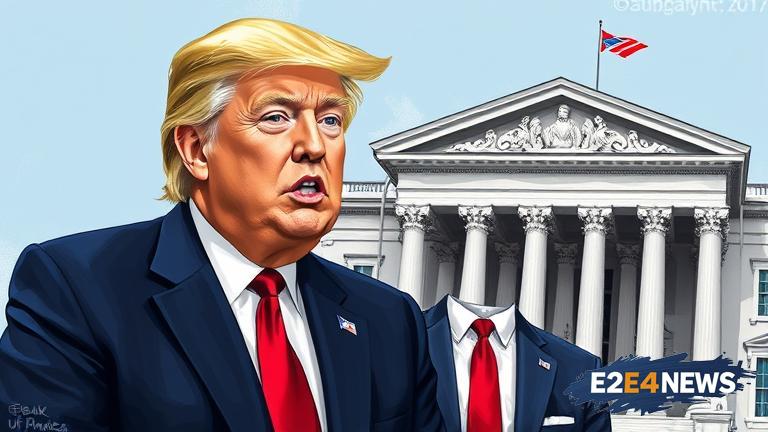In a recent statement, former US President Donald Trump claimed that two major American banks, JPMorgan and Bank of America, refused to do business with him. Trump alleged that the banks’ decision was motivated by political reasons, rather than any legitimate business concerns. This development has sparked a heated debate about the relationship between politics and finance in the United States. Trump’s statement has also raised questions about the role of banks in the country’s economy and their potential biases against certain individuals or groups. The former President’s allegations have been met with skepticism by some, who argue that the banks’ decision may have been driven by concerns about Trump’s business practices or creditworthiness. Others have pointed out that Trump’s claims may be an attempt to deflect attention from his own financial dealings, which have been the subject of controversy in the past. The incident has also highlighted the complex and often fraught relationship between politicians and financial institutions in the United States. Trump’s allegations have been denied by both JPMorgan and Bank of America, which have stated that their decisions were based on commercial considerations rather than political motivations. Despite these denials, Trump’s claims have sparked a wider conversation about the need for greater transparency and accountability in the banking sector. Some have argued that the incident highlights the need for stricter regulations on banks and financial institutions, in order to prevent them from engaging in discriminatory practices. Others have pointed out that the incident underscores the importance of maintaining a healthy distance between politicians and financial institutions, in order to prevent conflicts of interest and ensure that decisions are made on a commercial basis. The incident has also raised questions about the potential consequences of Trump’s allegations, both for the banks involved and for the wider economy. Some have argued that Trump’s claims could damage the reputation of JPMorgan and Bank of America, and potentially harm their business prospects. Others have pointed out that the incident could have broader implications for the US economy, particularly if it leads to a loss of confidence in the banking sector. The incident has also sparked a debate about the role of social media in shaping public discourse and influencing political outcomes. Trump’s allegations were initially made on social media, and have since been widely reported and discussed on various online platforms. Some have argued that social media has given Trump a powerful platform to shape public opinion and influence the narrative around his business dealings. Others have pointed out that social media can also be used to spread misinformation and manipulate public opinion, and have called for greater scrutiny of online discourse. The incident has also highlighted the importance of fact-checking and verification in the digital age. Trump’s allegations have been subject to intense scrutiny and fact-checking, with many experts and journalists seeking to verify the accuracy of his claims. This has underscored the need for rigorous fact-checking and verification in online discourse, in order to prevent the spread of misinformation and ensure that public debate is informed by accurate and reliable information. The incident has also raised questions about the potential impact of Trump’s allegations on his own business prospects and reputation. Some have argued that Trump’s claims could damage his reputation and harm his business prospects, particularly if they are seen as an attempt to deflect attention from his own financial dealings. Others have pointed out that the incident could have broader implications for Trump’s political prospects, particularly if it is seen as an attempt to rally his base and distract from other issues. The incident has also sparked a debate about the role of politics in shaping business decisions and outcomes. Some have argued that Trump’s allegations highlight the need for greater separation between politics and business, in order to prevent conflicts of interest and ensure that decisions are made on a commercial basis. Others have pointed out that the incident underscores the importance of considering the political context in which business decisions are made, and the potential consequences of allowing political considerations to influence commercial outcomes.
